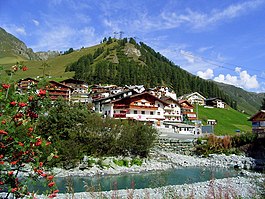지나간 일은 할 수 없어요.
What's done is done"된 것은 끝났다"는 영어의 관용구로, 보통 다음과 같은 선에 따라 무언가를 의미합니다. 즉, "과거를 바꿀 수 없으니, 그것으로부터 배우고 넘어가세요."
이 표현은 15세기 전반으로 거슬러 올라가는 "완료" 또는 "정착"의 의미로 "완료"라는 단어를 사용합니다.[1]
어원
이 문구의 첫 번째 기록된 사용법 중 하나는 영국 극작가 윌리엄 셰익스피어의 비극극 맥베스 (17세기 초)의 3막 2장에 등장하는 레이디 맥베스 (Lady Macbeth)라는 인물에 의한 것인데, 그는 이렇게 말했습니다: "모든 치료법이 없는 것들은 관계없이 이루어져야 한다: 무엇이 되었든, 행해졌든"[2] 그리고 "손을 내게 줘". 한 일은 되돌릴 수 없습니다. – 자, 자, 자, 자!"[3]
셰익스피어는 이 문구를 공동으로 사용하지 않았습니다. 실제로는 14세기 초 프랑스 속담에서 파생된 것일 수 있습니다. 메즈 퀀트 야에스트라는 "그러나 어떤 일이 이미 이루어지면 되돌릴 수 없습니다."라고 영어로 번역되는 펙테, Neut pas vienestre defecte를 선택했습니다.[4][better source needed] 일부 학자들은 셰익스피어가 소포클레스와 같은 고전적인 출처로부터 그 표현의 일부 버전을 배웠을 수도 있고, 그의 작품을 라틴어로 번역했을 가능성이 더 높다고 제안했습니다.[5]
참고 항목
참고문헌
- ^ "What does "what's done is done" mean?". Houghton Mifflin Harcourt Publishing Company (via yourdictionary.com). Archived from the original on April 15, 2013. Retrieved December 6, 2011.
- ^ "What's Done is Done – Shakespeare Quotes". eNotes. Retrieved December 6, 2011.
- ^ "Macbeth: Act 5, Scene 1, Page 3". SparkNotes. Retrieved December 6, 2011.
- ^ Bruce, Elyse (June 29, 2010). "What's Done Is Done". Idiomation. Retrieved December 6, 2011.
- ^ Harvey, John (1977). "A note on Shakespeare and Sophocles". Essays in Criticism. 27 (3): 259–270. doi:10.1093/eic/XXVII.3.259.
Thus the choric lament in Ajax [...] 'these things could not become so as not to be as they are' resembles the thought that rings through Macbeth, epitomizing the tragedy [...] There is some distance between the Greek formulation and the English, but the intricacy of the Greek is simplified in the Latin translations precisely to a pithy play of done-undone, facta-infecta


